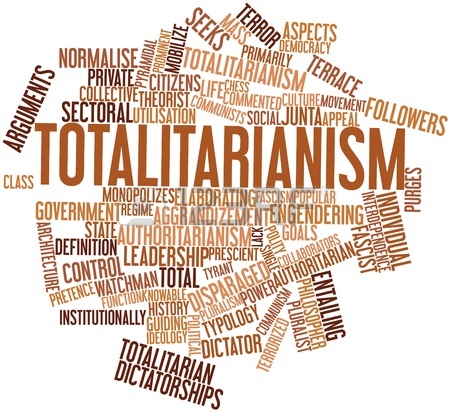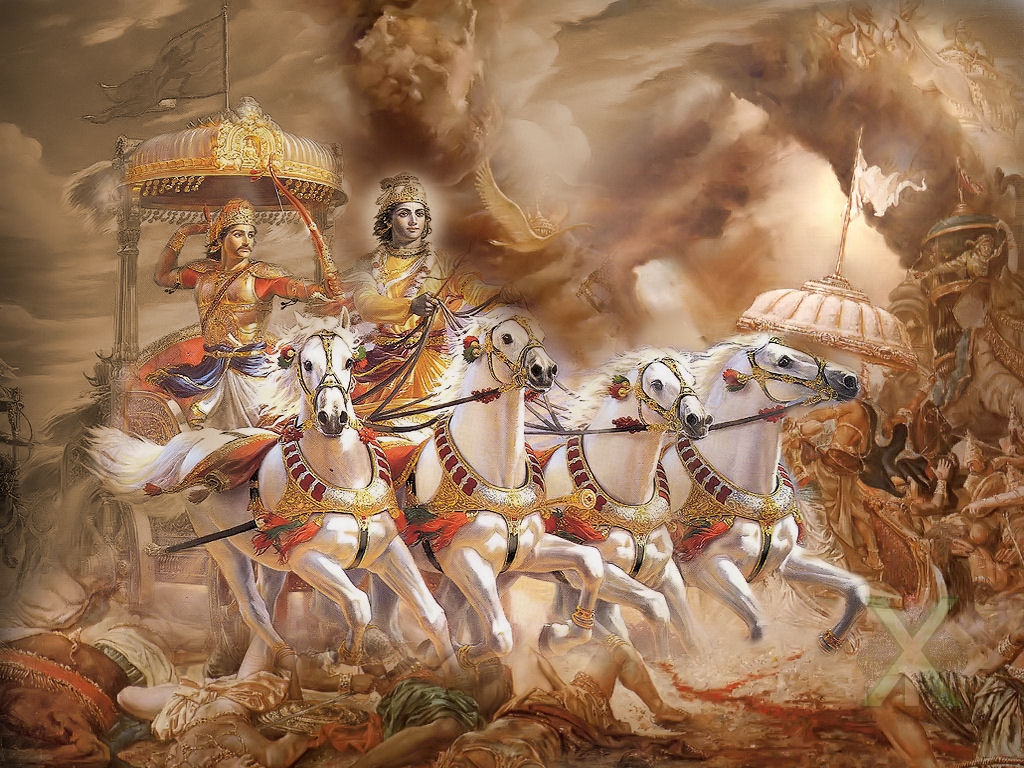Strength is honoured and is always looked upon with great admiration. Therefore, it is natural for human beings to aspire for greater and greater strength so that they are not only oppressed but are also respected. The opposite happens when a person sees himself oppressed. In face of oppression by a superior force the one who is oppressed often harbours a desire to get back at his oppressor, as it is difficult for him to respect himself and swallow his pride. This can happen not only to the individuals but also to the people. And when it happens to the people, it often results in a strong individual taking command to restore the ‘glory’ promising radical changes. People stand firmly behind such individual and an authoritarian regime takes root.
Unless there is enough desperation in people for change, authoritarian State does not come into being because it is not possible to rule without popular support. It follows that an authoritarian ruler remains in power only so long as he keeps the populace convinced that he is striving to achieve a stronger nation through effective means. It, therefore, becomes crucial for him to not allow any dissenting voices because dissent and opposition can weaken foundations of the authority. And weakness is the last thing that an authoritarian rule would want to concede. In this regard Paxton’s definition of fascism is very relevant. It goes like this:
 [Fascism is] a form of political behavior marked by obsessive pre-occupation with community decline, humiliation or victimhood and by compensatory cults of unity, energy and purity, in which a mass-based party of committed nationalist militants, working in uneasy but effective collaboration with traditional elites, abandons democratic liberties and pursues with redemptive violence and without ethical or legal restraints goals of internal cleansing and external expansion. [Paxton, Robert The Anatomy of Fascism.]
[Fascism is] a form of political behavior marked by obsessive pre-occupation with community decline, humiliation or victimhood and by compensatory cults of unity, energy and purity, in which a mass-based party of committed nationalist militants, working in uneasy but effective collaboration with traditional elites, abandons democratic liberties and pursues with redemptive violence and without ethical or legal restraints goals of internal cleansing and external expansion. [Paxton, Robert The Anatomy of Fascism.]
A few writers like Karl Loewenstein have pointed out that there is an unmistakable distinction between authoritarianism and totalitarianism. Authoritarianism refers to the absolute control of the apparatus of the State whereas totalitarianism goes further. It seeks to shape the private lives and morals of the citizens in line with a certain ideology. Naturally, it does not take kindly to criticism or dissent. And since it attempts to take total control of the lives of its people, it does not allow diversity of opinions and free exchange of ideas is systematically stifled. The rulers, therefore, not only run the political apparatus of the State but also the lives of the people. Such regimes enjoy the support of the masses only for a limited period of time because gradually people start resenting the curbing of their individual freedoms. However, in the beginning it does seem to work towards betterment. And this is because totalitarianism is about striving towards a certain goal without losing focus and without having individual goals. Therefore, coordination is better because the leaders keep the efforts focused and short term results are achieved in no time. Therefore, totalitarian regimes seem to work more efficiently and look more adept at producing results. The support and faith of the masses remains intact for that reason. The authoritarian ruler enjoys the status of a demigod and his word is considered the supreme law of the land. He appears and behaves formidable and capable of miracles. Therefore, more than the person the idea of his fellow is impressive and convincing. In times of desperation when there is no hope, such an authoritative person could easily manage overwhelming popular support. Hitler and Mussolini are cases in point.
Totalitarian rulers are against all kinds of pluralism because they see diversity as a threat to strength and feel that it weakens the resolve and the effort. Carl Schmitt, as a member of the Nazi party, pointed out:
The recognition of the plurality of autonomous life would, however, immediately lead back to a disastrous pluralism tearing the German people apart into discrete classes and religious, ethnic, social, and interest groups if it were not for a strong State which guarantees a totality of political unity transcending all diversity. Every political unity needs a coherent inner logic underlying its institutions and norms. It needs a unified concept which gives shape to every sphere of public life. In this sense there is no normal State which is not a total State. [Griffen, Roger (ed). 1995. The Legal Basis of the Total State – by Carl Schmitt. Fascism . New York: Oxford University Press. p. 72.]
Since a totalitarian State seeks to control the lives of its citizen the rulers have a fair idea of the kind of life they want to promote. Therefore, the way of life is imposed from above, and the freedom to live life as one wants is largely curtailed. There is a set of beliefs that the totalitarian ruler has and his beliefs are, to a large extent, shared by the people in one way or the other. And even if his beliefs do not appeal to a group of people, this group is either very small or fails to aggressively put across its dissent in time. For instance, Hitler believed in the superiority of the Aryan race and considered the Germans to be Aryans. He promised restoration of ‘honour’ to the Germans and forcefully argued that being the superior race they must be given their due. Germany was in bad shape then and was desperately looking for a solution to their ever-increasing problems. A passionate Hitler looked very promising and the people found themselves only too willing to accept that they were a superior race and had been wronged. It is very much possible that not all Germans were convinced about their racial superiority, but at that point of time they needed a strong leader to see them through the tough times and Hitler looked very much like one. Hitler was forceful in declaring what he believed in and looked completely convinced by it. He is quoted as saying, “Germany will either be a world power or will not be at all.” Of course, these are strong words indicative of a powerful leader. He also said once, “I believe today that my conduct is in accordance with the will of the Almighty Creator.”
Totalitarian regimes are intolerant of individualism because individualism runs counter to the central beliefs of the regime, as those beliefs call for a collective effort towards a common goal. Besides, individualism breeds dissent, which is not conducive to the goals of a totalitarian State. Also, individualism is essentially about having the liberty to decide for oneself, and under totalitarian reign the goals are very much pre-defined.
Originally published as part of Thinkers and Theory series in Lawyers Update in August 2010.





